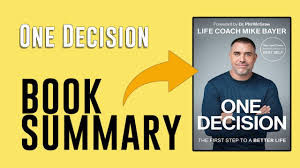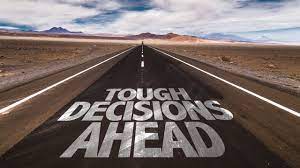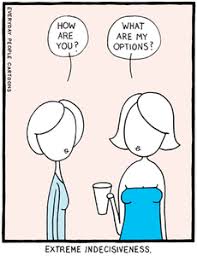8 Techniques for Improving Your Decision Making Skills
- Gather as much information as possible before making a decision.
- Consider all the potential consequences of your decision.
- Take time to reflect on the situation and think through each option carefully.
- Analyze the pros and cons of each option to help you make an informed choice.
- Ask for advice from trusted people whose opinion you value, such as family members or colleagues at work.
- Don’t make decisions in haste; take your time and consider all angles before committing to a course of action
- Be willing to take risks, but also be mindful of potential pitfalls or negative outcomes that could arise from certain decisions
- Trust yourself and your judgement; ultimately you are responsible for any decision you make
Gather as much information as possible before making a decision.
Making decisions can be challenging, especially when you are faced with a variety of options. One of the most effective techniques for improving decision-making is to gather as much information as possible before making a decision. This will help you to make an informed decision that is based on facts rather than assumptions or guesswork.
When it comes to gathering information, there are several things that you can do. First, take the time to research your options thoroughly. This may involve reading articles, watching videos, talking to experts, or conducting surveys or polls. The more information you have about your options, the better equipped you will be to make a decision that is right for you.
Another effective technique for gathering information is to consider the pros and cons of each option. Make a list of the advantages and disadvantages of each option and weigh them carefully. This will help you to identify which option has the most benefits and which one has the most drawbacks.
It’s also important to consider your own values and priorities when making a decision. Think about what matters most to you and how each option aligns with those values. This will help you to make a decision that feels right for you and that aligns with your goals and objectives.
In conclusion, gathering as much information as possible before making a decision is one of the best techniques for improving decision-making. By taking the time to research your options, consider their pros and cons, and reflect on your own values and priorities, you can make an informed decision that is right for you. So next time you face a tough choice, remember this tip – gather as much information as possible before making a decision!
Consider all the potential consequences of your decision.
When it comes to making decisions, it can be easy to get caught up in the moment and only consider the immediate effects of our choices. However, taking the time to consider all potential consequences of a decision can lead to better outcomes in the long run.
By considering all potential consequences, we are able to evaluate our options more thoroughly and make more informed decisions. This means looking beyond just the short-term benefits or drawbacks and considering how a decision may impact us in the future.
For example, if we are considering taking a new job offer, we may initially only think about the higher salary and better benefits. However, by taking the time to consider all potential consequences, we may also realize that this new job will require a longer commute or more hours at work. This could impact our work-life balance and overall happiness in the long run.
It’s important to remember that every decision we make has consequences, both positive and negative. By taking the time to consider all potential outcomes, we can make choices that align with our values and goals for the future.
In conclusion, when making decisions, don’t just focus on immediate benefits or drawbacks. Take the time to consider all potential consequences and weigh your options carefully. This technique can lead to better decision making and ultimately help you achieve your desired outcomes in life.
Take time to reflect on the situation and think through each option carefully.
Making decisions is an important part of our daily lives. From deciding what to eat for breakfast to making major life-changing decisions, we are constantly faced with choices that can have a significant impact on our lives. However, making the right decision can be challenging, especially when we are faced with a multitude of options. That’s why taking time to reflect on the situation and think through each option carefully is an essential technique for improving decision making.
When we take the time to reflect on a situation, we give ourselves the opportunity to step back and think about all of the available options. We can consider the pros and cons of each option and evaluate which one would be best for us based on our goals and values. This reflection also allows us to identify any biases or emotional attachments that may be clouding our judgment.
Thinking through each option carefully is equally important. By considering all possible outcomes, we can make more informed decisions that are less likely to result in negative consequences. We should also take into account any potential risks or challenges associated with each option and evaluate whether we have the resources and support needed to overcome them.
Taking time to reflect on a situation and think through each option carefully may require patience, but it is well worth it in the end. By doing so, we can make better decisions that align with our goals and values, ultimately leading to greater success and fulfillment in life.
Analyze the pros and cons of each option to help you make an informed choice.
Making decisions is an essential part of our daily lives. From small choices like what to eat for breakfast to more significant decisions like which job offer to accept, we are constantly faced with choices. However, making the right decision can be challenging, and it’s easy to feel overwhelmed when presented with multiple options. That’s where analyzing the pros and cons of each option comes in handy.
By taking the time to carefully analyze the pros and cons of each option, you can make an informed choice that aligns with your goals and values. This technique involves listing out all of the potential benefits and drawbacks of each option and weighing them against each other.
For example, let’s say you are considering two different job offers. You could list out the pros and cons of each position, such as salary, benefits, commute time, work-life balance, and potential for growth. By doing this exercise, you can see which job offer aligns best with your career goals and personal values.
Analyzing the pros and cons of each option allows you to make a more rational decision based on facts rather than emotions or biases. It also helps you consider all aspects of a decision rather than just focusing on one aspect.
In conclusion, analyzing the pros and cons is a valuable technique for improving decision making. By taking a step back from your emotions and biases and objectively weighing the benefits and drawbacks of each option, you can make informed choices that align with your goals and values.
Ask for advice from trusted people whose opinion you value, such as family members or colleagues at work.
Making decisions can be a daunting task, especially when faced with difficult choices. But did you know that asking for advice from trusted people whose opinion you value can help improve your decision-making skills?
Family members, friends, and colleagues at work are the people who know us best and can provide valuable insights into our decision-making process. They can offer a different perspective on the situation and help us see things from a different angle.
When seeking advice, it’s important to choose people whose opinion you value and trust. These individuals should have experience in the area of your decision or be knowledgeable about the subject matter. It’s also essential to choose someone who is unbiased and not emotionally invested in the outcome of your decision.
By seeking advice from trusted individuals, we can gain new insights into our decision-making process and make more informed choices. We can also learn from their experiences and avoid making the same mistakes they may have made in similar situations.
In conclusion, asking for advice from trusted people whose opinion you value is an effective technique for improving decision making. It allows us to gain new perspectives on our choices, learn from others’ experiences, and make better-informed decisions. So next time you’re faced with a tough decision, don’t hesitate to seek advice from those closest to you!
Don’t make decisions in haste; take your time and consider all angles before committing to a course of action
When it comes to making decisions, it’s important to take your time and consider all angles before committing to a course of action. Rushing into a decision can lead to regret, missed opportunities, and even negative consequences. That’s why one of the most valuable techniques for improving decision making is to avoid hasty decisions and take the time needed to evaluate all options.
Taking the time to consider all angles allows you to gather more information, weigh the pros and cons of each option, and make a more informed decision. This means that you are less likely to overlook important factors or make assumptions that could lead you down the wrong path.
It’s also important to remember that not all decisions need to be made immediately. In fact, some decisions can benefit from taking a step back and thinking things through before committing. This is especially true when it comes to big life-changing decisions such as changing careers or moving homes.
So next time you’re faced with an important decision, resist the urge to rush into it. Take your time, gather information, and consider all angles before committing. By doing so, you’ll increase your chances of making a well-informed decision that will benefit you in the long run.
Be willing to take risks, but also be mindful of potential pitfalls or negative outcomes that could arise from certain decisions
Making decisions is an integral part of our lives, and it can be a daunting task to choose the right path. One of the key techniques for improving decision making is to be willing to take risks. Taking risks can lead to new opportunities and experiences that we may not have encountered otherwise. However, it’s important to be mindful of potential pitfalls or negative outcomes that could arise from certain decisions.
When taking risks, it’s important to weigh the potential benefits against the potential costs. Consider what you stand to gain from a particular decision, but also think about what you might lose if things don’t go as planned. It’s essential to take calculated risks that have a reasonable chance of success while minimizing any potential downsides.
Being mindful of potential pitfalls doesn’t mean avoiding risks altogether; it simply means being aware of them and taking steps to mitigate them. This can involve doing research, seeking out advice from others who have experience with similar situations, or developing contingency plans in case things don’t go as planned.
In summary, being willing to take risks is an essential technique for improving decision making. However, it’s equally important to be mindful of potential pitfalls or negative outcomes that could arise from certain decisions. By weighing the potential benefits against the costs and taking calculated risks while minimizing any downsides, we can make more informed decisions that lead us towards our goals and aspirations.
Trust yourself and your judgement; ultimately you are responsible for any decision you make
When it comes to decision making, it’s important to remember that you are ultimately responsible for any decisions you make. This can be a daunting thought, but it’s also empowering. It means that you have the power to take control of your life and make decisions that will benefit you in the long run.
One of the most important techniques for improving decision making is to trust yourself and your judgement. You know yourself better than anyone else, and you have a unique perspective on your own life and circumstances. While it’s important to seek advice and guidance from others, ultimately the decision is yours to make.
Trusting yourself can be difficult, especially if you’ve made decisions in the past that didn’t turn out as expected. But it’s important to remember that every decision is an opportunity to learn and grow. If a decision doesn’t turn out as planned, take it as a lesson and use that knowledge to inform future decisions.
Another key aspect of trusting yourself is being honest with yourself about what you want and need. It can be easy to get caught up in what others expect or want from us, but at the end of the day, we have to live with our own decisions. Take the time to reflect on your own values and priorities before making a decision.
In conclusion, trusting yourself and your judgement is an essential technique for improving decision making. It takes practice, but with time and experience, you’ll become more confident in your ability to make sound decisions that align with your values and goals. Remember: ultimately, you are responsible for any decision you make, so trust yourself and take control of your life!




